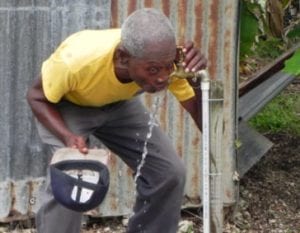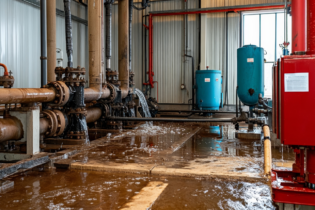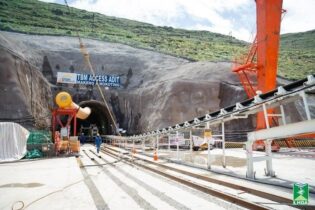“Despite the fact that the proportion of households living in formal dwellings has gone up by 12,5% since 1996, 8,8% of households still do not have access to piped water, 31 % of households still do not have acceptable sanitation facilities. While this is an improvement on the previous census, it is still not good enough,” said Advocate Johnny De Lange, delivering the opening address of the International Conference on Fresh Water Governance for Sustainable Development on 5 November 2012 on behalf of the South African Minister of Water Affairs, Edna Molewa.
The Conference is taking place at the Champagne Sports Resort in Central Drakensburg, South Africa from 4th to 7th November 2013 and will be covering topics relating to water legislation and public sector accountability, markers of good governance, promoting water integrity and transparency in the SADC region and multi-level water governance and adaptive management, amongst others. “We have sufficient resources in this country to make sure that all of our people have access to sufficient water and adequate sanitation facilities,” said De Lange, adding that “it is the administrative systems that we put in place that must ensure that positive discrimination is implemented.” Pillars to governance In discussing the aim of the Conference – understanding the meaning of water governance, why it matters and how we can do it better – De Lange highlighted four pillars to water governance, namely the political, social, economic and administrative systems, adding that perhaps the fifth should be natural systems. He warned however that in so doing, we must ensure that we are not further entrenching inequity in the South African society, trapping the poor in on-going poverty in order to protect ecosystems. “We need a balance between ecosystem and protection.”According to De Lange, the Conference therefore has an important contribution to make to the National Water Resources Strategy, especially with regard to developmental water management, “water management that contributes directly and appropriately to the developmental requirements of the country, including the development of water infrastructure.”
“The foundation on which these five pillars stand is what stands between a water stressed country like South Africa and a water crisis,” said De Lange, concluding that “we all need to come to this party” as the National Water Resources Strategy 2 enters finalisation and implementation stages and the Department of Water Affairs and other water sector role-players consider revising the Water Services Act and the process to revise the White Paper on Sanitation continues.






